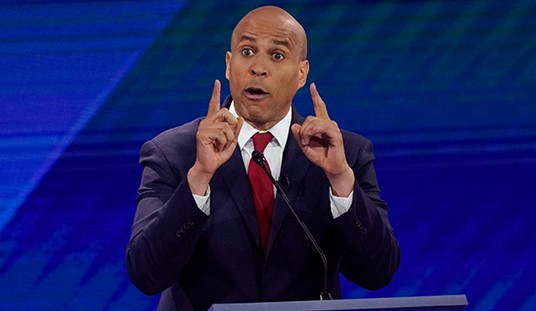
With the hallucinogenically-named Employee Free Choice Act “basically dead” for now, union bosses are still finding ways to try to fill their coffers with new members any way they can. At the state level, since agricultural workers are excluded from the National Labor Relations Act, the United Farm Workers is using the farm worker exemption to its advantage—and counting on newly-elected Democrat Governor Jerry Brown to help it.
On Sunday, while small marches took place around California commemorating Cesar Chavez Day, the United Farm Workers (the union that the late Cesar Chavez co-founded and led) issued a press release announcing their ongoing push for California SB 104, the “Fair Treatment for Farm Workers Act.”
The four-mile march through the streets of Greenfield, led by UFW President Arturo Rodriguez, commemorates the life and legacy of Chavez. Keeping with the farm labor leader’s vision and lifetime-dedication to farm worker rights, the event is also a push for SB 104, the Fair Treatment for Farm Workers Act. The bill, written by state Senate leader Darrell Steinberg (D-Sacramento) would help field laborers better protect themselves by making it easier for them to join unions.
California’s farm workers already have the right to join unions. However, today, they have the right to vote by secret ballot. SB 104 would effectively eliminate secret ballot elections by introducing card check for the first time:
SB 104, as introduced, Steinberg. Labor representatives: elections.
Existing law prohibits employers from engaging in unfair labor practices, including interfering in the election by agricultural employees of labor representatives to engage in collective bargaining for the designated bargaining units. Existing law also provides criminal and civil penalties for any employer or person who engages in unfair labor practices as determined by the Agricultural Labor Relations Board within the Labor and Workforce Development Agency and the courts.
Existing law provides for a secret ballot election for employees in agricultural bargaining units, as defined, to select labor organizations to represent them for collective bargaining purposes.
This bill would, instead, refer to the above-described secret ballot elections as elections occurring at polling sites. This bill would also permit agricultural employees, as an alternative procedure, to select their labor representatives by submitting a petition to the board accompanied by representation cards signed by a majority of the bargaining unit. The board would be required to conduct an immediate investigation to determine whether to certify the labor organization as the exclusive bargaining representative for the particular agricultural employees. [Emphasis added.]
Since card check is the union bosses’ preferred method (over secret-ballot elections) of getting new members, assuming this passes the California legislature and is signed into law by Jerry Brown, it is doubtful that many of the farm workers will be given the chance to vote using secret ballots ever again.
In addition to the card check provisions of SB 104, the bill also provides extraordinarily high fines for employers.
For example, upon being served with a petition for majority sign up, the employer must immediately turn over employee information to both the union and California’s Agricultural Labor Relations Board or be fined $10,000 for each day the employer does not respond.
Within 48 hours after the petition is served, the employer shall file with the board, and personally serve upon the labor organization that filed the petition, its response to the petition. As part of the response, the employer shall provide a complete and accurate list of the full names, current street addresses, job classifications, and crew or department of all currently employed employees in the bargaining unit. The employer shall organize the employees’ names and addresses and other information by crew or department and shall provide the list to the board and petitioning labor organization in hard copy and electronic format. The employees’ first name, middle name or initial, last name, address, city, state, ZIP Code, classification, and crew or department shall be organized into separate columns. Immediately upon receiving the employer response and employee list, the board shall provide the response and employee list by hard copy and electronic copy to the labor organization that filed the majority signup election petition. For each day an employer fails to provide a complete and timely response, the board shall assess a fine of up to ten thousand dollars ($10,000). [Emphasis added.]
Much like the failed EFCA, California’s SB 104 provides for civil penalties of up to $20,000 per unfair labor practice. In this area though, much like EFCA, the language is vague as to whether or not a $20,000 penalty is for a single event, or whether it could be multiplied by the number of persons affected by that single event.
In the end, should SB 104 pass the legislature and Jerry Brown sign it into law, it will turn out to be a huge boon to the United Farm Workers and further evidence on how much Democrats will do anything for their union bosses.
_________________
“I bring reason to your ears, and, in language as plain as ABC, hold up truth to your eyes.” Thomas Paine, December 23, 1776














Join the conversation as a VIP Member